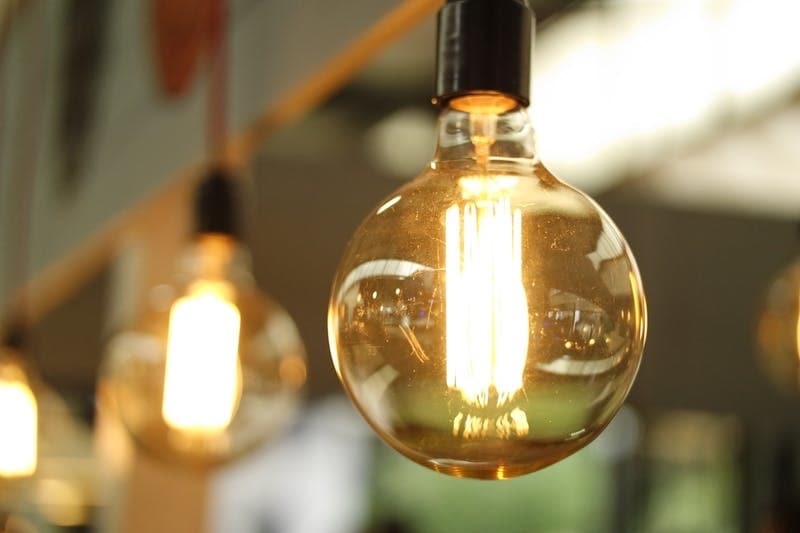the Best Generator Reviews

Every time there are solar lights and things like this to power around the home, home generators can make things easy and simple, especially when going in the garden. This article looks at tips on how to choose the best home generator.

Home Generator
Looking for a top of the line home generator? We’ve been in the prepping game for a long time so we know the ins and outs of handling basic survival needs like what to eat, drink, and so on. After getting those squared away you’ll want to think about getting a home generator. It can be a complex task but we’ve done the research for you, compiling reviews from expert tradespeople in our research.
What’s the price of a generator for your whole house?
We’ve put together a full guide to help you figure out how to choose a home generator that will be right for you, let’s start with cost.
Including the price of installation, the full cost of getting your new generator will be between $500 to $3000. Smaller portable units do not require professional installation and will save you money.
Next, we will describe the specifics of how much a generator will run you based on your needs.
What is the best home generator size for my house?
To figure out what you need, begin by asking yourself how much wattage is needed:
Where is your home’s water coming from?
Pumping water from a well requires 3800 watts or more for a 230+ volt generator.
What type of heating system do you have?
With systems using gas or forced oil for power, only a small generator is needed to produce at least 2500 watts. Larger furnace systems need more power
15,000 watts is the baseline for electric heat, so even the best portable generator for home use won’t be enough.
What type of system powers your hot water set up?
Like the systems we previously described, oil or gas systems use the least energy: around 2500 watts.
More energy, 4500 watts at minimum, will be needed for electric heat.
For houses that use municipal water and a small heating system, 3000-5000 watts will most likely be enough. Water from wells and large heaters take much more energy, 5000-7000 watts.
Lay Out Your Home’s Electric System
Once you figure out how you’re going to use your generator, you’ll then need to take a look around your home. Locate all of your power switches and wall outlets, and trip the service panel switches to discern what matches to which locations in your home.
What way should I go about this? It’s simple if you get help from a friend. Have your friend wait by the service panel tripping different switches then you will go around your home to see what switch turns off what. Using a phone or radio to communicate can be a big help. Be sure to record all of the information and you’ll be all set.

Best Home Generator
Figuring out Wattage for Your Home Generator
Determining the size of the home generator you should purchase means you need to add up how much wattage you will use.
It can be tricky, though it’s not as difficult as it may seem. You simply need to survey your home to discern what devices need power and then come up with the sum of their required wattage.
Typically you will find that your devices display its wattage somewhere like a label, but if you can’t seem to find one then you might find it listed in a manual, or by searching online.
We hope to give you safe estimates to work with, but don’t forget:
Appliances may use a range of energy, greater or less than what we’ve described.
When a product turns on it consumes a higher level of energy. Then it was dropped afterward while being used. An automatic home generator will help save unnecessary power waste with this.
How Big Should My Home Generator Be?
After you determine the approximate wattage needs for your home’s devices to use in a crisis you can figure out how big of a generator is needed. If you’re looking only for a backup home generator then a smaller size should work.
Little: Typically puts out roughly 2000-6000 watts. “Inverter generators” are the name for portable ones often used for camping. The more powerful the more they will cost.
Medium: Puts out 1500-5000 watts. Ideal when supplying just a few essential appliances.
Big: Puts out 6500-8000 watts. It can supply power for multiple rooms.
Oversize: Puts out 15000-20000 watts. It can supply a whole house.
Some devices just require too much energy to safely keep running with a generator. You might want to consider switching to more energy-efficient appliances when thinking about the best power generator for home use.
Types of Home Generators: Solar lights or gas-powered?
When it comes to solar there aren’t many options available, but finding the solar-powered generator for home use can be done. You will need to pay more and end up with lower wattage but it can save you money long term.
A gas generator for home is a reliable choice, most portable generators run on gas and they can output a low to the medium flow of energy. When thinking about the fuel you want to choose based on what is easily available, so you may want to think about a home diesel generator instead of gas.
- UPGRADED ROCKPALS 300-WATT PORTABLE POWER STATION: Comparing to most similar power stations, Rockpals 300W has upgraded the AC output to 300W continuous (600W surge max); 5* DC port (16A / 96W max); built-in 2* USB 2.1A and 2*Quick Charge 3.0 usb. Perfect emergency backup power for home/camping, charging up your tablets, iPhone, iPad, laptops, fans, TV, lights and CPAP machine (*Use Rockpals DC converter from your CPAP would get longer hours)
- HIGHER CAPACITY CAMPING/HOME BACKUP BATTERY: 280WH(3.7V 75Ah/12V 18.7Ah) lithium batteries and weights 7.3lb. powerful enough to charge smartphones (2000mah) 26 times, laptops (56wh) 4-5 times, mini fridge(45W) about 6-18 hours. This battery powered generator is also very handy to be put on your RV, campervan or wherever you need power (Support Pass Through Charging)
- EASILY THREE WAY RECHARGEABLE: 1. Rockpals portable power station can be recharged from the sun with any compatible 60W or 100W solar panel (SOLD SEPARATELY). 2) It can be fully charged in 6-7 hours by being plugged into the wall outlet. 3) This portable generator can be fully charged in 6-7 hours by car charger
- PURE SINE WAVE OUTLET: Better than modified sine wave and clean power like utility supplied electricity. And it is a gas-free source of portable power supply, it runs quiet (The cooling fan on the side of generator will make a slight sound when working), no exhaust fumes.
- WHAT YOU GET: Rockpals portable generator (280Wh Portable Generator), AC adapter, car charger cable, MC4 adapter, user guide, our worry-free 18-month warranty and friendly customer service.
- True power technology delivers best-in class power quality (less than 5% thd) for Smooth operation of sensitive electronics and appliances
- Includes a 200 amp NEMA 3 (indoor/ outdoor rated) whole house Smart transfer switch
- Generac evolution controller features LED indicators for generator status, utility power presence or maintenance required
- Tough, durable all-weather aluminum enclosure offers 3 removable sides for easy access for installation, service and maintenance
- Battery not included. Generac Battery 7043 5819 Sold Separately.
- Dual Fuel: Operate your 3800-watt portable generator right out of the box on either gasoline or propane, plus the unit holds 0.6-quarts of oil (included) and has a low oil shut-off sensor
- Electric Start: Power up the 224cc Champion engine with the handy toggle switch, battery included
- Intelligauge: Keep track of voltage, hertz and run-time hours to easily monitor power output and track maintenance intervals. Dimensions-26.3 x 24.8 x 22.9 inches
- Outlets: One 120V 30A RV outlet (TT-30R), one 120V 30A locking outlet (L5-30R) and two 120V 20A household outlets (5-20R) - trust Volt Guard built-in surge protector to prevent overloads
- Champion Support: Includes 3-year limited warranty with FREE lifetime technical support from dedicated experts
- Plenty of Power – With 4,000 peak watts and 3,300 running watts, this unit can handle heavy loads, from lights and a refrigerator to a home air conditioner and high amperage power tools
- Powerful Engine – The DuroStar 208cc OHV engine is a workhorse that provides plenty of power to handle multiple jobs, from powering high voltage appliances to heavy duty power tools
- Low Oil Shutoff – Protects your investment by automatically shutting the generator off when it senses that the oil is low
- Power Panel – The power panel includes a selection of outlets for maximum compatibility in your applications including: 2 120V household outlets and 1 120V 30A twist lock outlet. The panel also includes a voltmeter for measuring voltage output
- Complies with Emissions Standards – All DuroStar generators are both approved by the EPA (Environmental Protection Agency) and CARB (California Air Resources Board) and follow strict guidelines to ensure our generators are as environmentally friendly as possible
Conclusions:
Buying a generator for your home can seem daunting but if you follow these steps then you will be well on your way to figuring out what you need in your home or cabin. It’s an important next step once you’ve covered your basic needs like food, water, and shelter, and it will help you improve the livability of your off-grid cabin or your home’s disaster preparedness. There are many great options available to you when looking to power your devices.
Have you used a home generator? Tell us about it in the comments.
Author’s bio: Milicent Franbard is from Ottowa and studied journalism at SCAD. He’s written extensively about camping and survival technology for online publication. He enjoys amateur geology and baking pies.
Last update on 2023-11-01 at 11:38 using Amazon Product Advertising API
